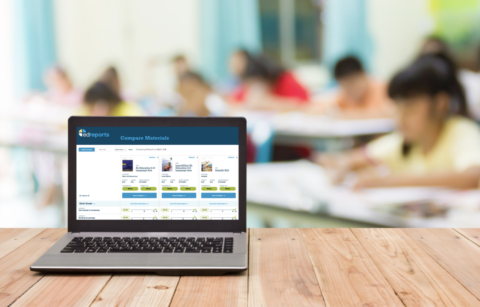EdReports and Center for Assessment Announce Collaboration to Review Interim Assessments
This endeavor seeks to shine a light on the current state of the $1B+ interim assessment market
Related Resources
article
What You Need to Know about Curriculum-Embedded Assessments
Learn about the benefits of embedded assessments, and how they ensure that what you assess aligns to what you taught.
article
3 New Features of the EdReports Report Center
EdReports’ updated reports experience showcases evidence-rich reviews in a more user-focused format.
article
Behind the Review Criteria: Defining Quality for Pre-K Curriculum
With new pre-K reviews ahead, EdReports explains how our research-informed criteria help districts understand quality and choose materials that support all learners.


